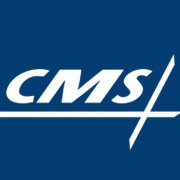35 Audits Find Medicare Advantage Plans Overbilling CMS
Out of 37 audits obtained by the Center for Public Integrity, 35 showed Medicare Advantage plans over-billed CMS.

- Audits conducted by the Government Accountability Office (GAO) reveal that up to 35 Medicare Advantage plans fraudulently billed the federal government for medical care provided to many of its elderly patients. The Center for Public Integrity received 37 audits of Medicare Advantage health plans By pursuing a Freedom of Information Act lawsuit.

The audits come from 2007 and most of the fraudulent billing has been paid back since that year. However, there are some Medicare Advantage plans still appealing the findings from the federal government.
These type of audits are vital since Medicare Advantage plans currently cover the costs of care for more than 17 million Seniors and the Centers for Medicare & Medicaid Services (CMS) paid these health plans more than $160 billion in 2014.
The Center for Public Integrity further clarified that risk scores used by Medicare Advantage plans are leading to higher likelihood of overbilling between payers and providers. Risk scores consist of analyzing which patients are sicker and will require more expensive services.
“Many seniors choose the managed-care Medicare Advantage option instead of the traditional government-run Medicare program because it fills gaps in coverage, can cost less in out-of-pocket expenses and offers extra benefits, such as dental and eye care,” The Center for Public Integrity reported.
“But billions of tax dollars are misspent every year through billing errors linked to a payment tool called a “risk score,” which is supposed to pay Medicare Advantage plans higher rates for sicker patients and less for those in good health.”
Based on whistleblower lawsuits, private Medicare Advantage payers have previously been accused of inflating risk scores to ensure higher revenue. One report from the Government Accountability Office discussed risk adjustment that Medicare Advantage plans utilize when billing CMS.
The report outlined that CMS had conducted its own internal audit and found that $14.1 billion was improperly billed to Medicare Advantage organizations in 2013. The latest audits from CMS may be in jeopardy due to delays regarding its identification and recovery of erroneous payments.
“CMS’s goal of eventually conducting annual RADV audits is in jeopardy because its two RADV audits to date have experienced substantial delays in identifying and recovering improper payments. RADV audits of 2007 and 2011 payments have taken multiple years and are still ongoing for several reasons,” the GAO report stated.
“CMS has not expanded the recovery audit program to MA by the end of 2010, as it was required to do by the Patient Protection and Affordable Care Act… Despite the importance of increasing the number of contracts audited, CMS does not have specific plans or a timetable for incorporating RACs into the RADV audit framework, contrary to established project management principles, which stress the importance of developing an overall plan to meet strategic goals.”
Out of the 37 audits obtained by the Center for Public Integrity, only two Medicare Advantage plans had not been overpaid. In fact, the payment discrepancies were in the amounts of several hundred thousand dollars. Humana, UnitedHealthcare, and WellPoint were some of the healthcare payers that had overcharged CMS with regard to their Medicare Advantage plans.
Millions of dollars could have been lost through these overpayments, reports the Center for Public Integrity. The Medicare Advantage plans were found to be three times more likely to charge too much versus too little for several of the 70 medical conditions analyzed in the GAO review.
Many extra payments were made to health plans that claimed diabetes patients had complications of the disease such as kidney problems or eye-related conditions. However, the audits disproved the existence of these health problems in half of the cases reported.
Other medical conditions claimed to be falsely reported by the auditors include “major depressive bipolar and paranoid disorders” along with “drug/alcohol dependence.” However, there were also at least 200 cases in which auditors stated that “patients justified higher fees that plans charged because of the severity of their illnesses.” Additionally, it’s vital to note that auditors were more likely to reduce payments instead of raising them for large numbers of medical conditions.
GAO released a report this past May as well outlining audits that show CMS paid at least $14.1 billion in overpayments to Medicare Advantage organizations in 2013. CMS may need to align improper payment risk when arranging contracts with Medicare Advantage organizations.
Without these structures in place, CMS is more likely to experience improper payments and lose funds that could have been used in more imperative areas of running the nation. Past findings have also declared that skilled nursing facilities are erroneously charging CMS as well. The reimbursement rate at skilled nursing facilities has been rising lately, which means Medicare payments to these organizations may increase in the coming years.
The federal agency will need to work with private payers and providers to create more transparent and honest channels for reimbursing medical care among elderly patients.
Dig Deeper:
Are Skilled Nursing Facilities Fraudulently Billing Medicare?
Medicare Must Remain Cautious with Alternative Payment Models
